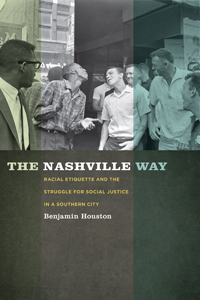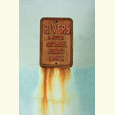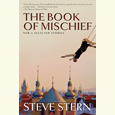A Massive Whitewash
In a new book, historian Benjamin Houston corrects the misperception that racial integration in Nashville was a model of civility for the rest of the South
For whatever reasons, Nashville does not show much interest in the narratives of its past. Most Tennessee counties have an active historical society, but not Davidson. Knoxville and Chattanooga have museums that recount the history of their cities and surrounding regions, as do many smaller Tennessee cities, but not Nashville. On our riverfront where Nashville was founded and in our historic downtown, aside from a few miscellaneous historical markers (most erected by the state), there are only three city-supported attempts to tell Nashville’s story and spark an interest in our history–a collapsing, filthy, and thus shameful replica of Fort Nashborough; the Public Square that has now become a circle edged on the south by a row of black tombstones for the places that used to be the Square; and a massive, and largely reviled (though I like it), sculpture on the East Bank meant to evoke our industrial past. Without shared historical narratives, it is probably inevitable that Nashvillians will generally fall in line behind whatever narrative civic boosters suggest—“The Athens of the South,” “The Wall Street of the South,” “The Protestant Vatican,” “Music City USA.” Most of Nashville is not now, and has never been, any of these, though that may be all that comes to mind when such slogans are the only narratives we share.
 One such boosteristic slogan is the title of a new book, The Nashville Way: Racial Etiquette and the Struggle for Social Justice in a Southern City, by historian Benjamin Houston. I suspect most Nashvillians today are unfamiliar with this “Nashville Way,” and when I Googled it, aside from links to this book, I mainly got links to advice on playing stringed instruments or “making it” in the music business. Houston’s “Nashville Way” is earlier, coined (it’s not clear by whom) in the 1960s to describe the more civilized manner in which Nashville confronted the racial integration of its schools and public accommodations than did, say, Birmingham—or more exactly, the more genteel manner in which the white establishment of Nashville behaved when confronted with demands of equality from the black people of Nashville.
One such boosteristic slogan is the title of a new book, The Nashville Way: Racial Etiquette and the Struggle for Social Justice in a Southern City, by historian Benjamin Houston. I suspect most Nashvillians today are unfamiliar with this “Nashville Way,” and when I Googled it, aside from links to this book, I mainly got links to advice on playing stringed instruments or “making it” in the music business. Houston’s “Nashville Way” is earlier, coined (it’s not clear by whom) in the 1960s to describe the more civilized manner in which Nashville confronted the racial integration of its schools and public accommodations than did, say, Birmingham—or more exactly, the more genteel manner in which the white establishment of Nashville behaved when confronted with demands of equality from the black people of Nashville.
Houston concludes that the slogan was nothing more than “a massive whitewash on multiple levels,” and he tells why in narratives from the perspective of both the white establishment and the leadership of the black community. He begins by analyzing the etiquette of racial segregation in Nashville and the spatial layout of the city that enforced segregation from the late-1930s to the mid-50s. Within this context, he continues with accounts of public school desegregation in the mid- and late 1950s, the 1960 lunch counter sit-ins, disturbances attributed to Stokely Carmichael’s visit to the city in 1967, and concludes with accounts of the battles over the building of Interstate 40, the local Model Cities program, and the issues of busing, all of which reinforced spatial segregation in Nashville. On the whole, as he says in the introductory chapter, “it is the story of a society wrestling with yet willfully ignoring its racial reality. More fundamentally,” he continues, “it is the story of how a racial status quo, after decades of upheaval, was both changed and yet preserved.”
In the course of his larger story, Houston contends that the most notable “Nashville Way,” though the slogan does not encompass it, was not the gentility of the white establishment, but the courage and dignity of the black students during the lunch counter sit-ins. “Something happened in Nashville,” Houston quotes John Lewis, one of these students and now a Congressman, as saying, “that did not happen any other place in America.” Houston tells this story well, but it is only a small part of his larger narrative/argument, and it is told more comprehensively by David Halberstam in The Children.
 Interestingly, Halberstam is among those that Houston quotes early in his book as one who has bought into and promulgated the “massive whitewash” of “The Nashville Way.” He illustrates with this passage from The Children: “Nashville segregation was largely of a soft kind, administered it sometimes seemed, not with the passion of angry racist officials, but more as a cultural leftover of the past.” It is impossible to read Houston’s full account and not see this seeming summation from Haberstam as almost willfully naïve—in fact, a whitewash. There was, of course, no “soft kind” of racial segregation, and Nashville did not solve, and has not solved, the ills of slavery and Jim Crow much, or any, better than any other once officially segregated city. That is all Houston is arguing, but his only truth is a terribly important one. The Nashville Way is a book that should be read by everyone interested in Nashville’s history and particularly by those who lack such an interest but presume to chart our future.
Interestingly, Halberstam is among those that Houston quotes early in his book as one who has bought into and promulgated the “massive whitewash” of “The Nashville Way.” He illustrates with this passage from The Children: “Nashville segregation was largely of a soft kind, administered it sometimes seemed, not with the passion of angry racist officials, but more as a cultural leftover of the past.” It is impossible to read Houston’s full account and not see this seeming summation from Haberstam as almost willfully naïve—in fact, a whitewash. There was, of course, no “soft kind” of racial segregation, and Nashville did not solve, and has not solved, the ills of slavery and Jim Crow much, or any, better than any other once officially segregated city. That is all Houston is arguing, but his only truth is a terribly important one. The Nashville Way is a book that should be read by everyone interested in Nashville’s history and particularly by those who lack such an interest but presume to chart our future.
Of course, The Nashville Way is not without small inaccuracies, most of which have no real bearing on the book’s thesis. More significant, it seems to me, is Houston’s failure to mention Congressman Fulton’s vote for the 1964 Civil Rights Bill, ending legal segregation in the nation’s public accommodations. Other than four Texans long-aligned with President Johnson, only three Southern congressmen voted for this bill, and two were from Middle Tennessee: Fulton and Ross Bass of Pulaski. Fulton was easily reelected that year though he paid for this vote in subsequent congressional elections, before his election as mayor of Nashville in 1975. After his vote, Bass was elected in a statewide race to fill Estes Kefauver’s unexpired term, but only served two years before he was defeated in the election for the full term.
Houston is right that “The Nashville Way” is a whitewash if we pat ourselves on the back and take the slogan to mean that the Nashville’s white establishment and white community behaved well in the face of the black community’s demands for equality. But perhaps we can still believe that we behaved less badly than some of our peers. Our bombs did not kill children, and our voters did not, generally, demand or reward demagogues. That we were somewhat less uncivilized is not much to be proud of, but degree can make a difference, so long as we don’t expect a gold star.
Robert Cheatham is the president of Humanities Tennessee. He has been a resident of Middle Tennessee for most of his life.


